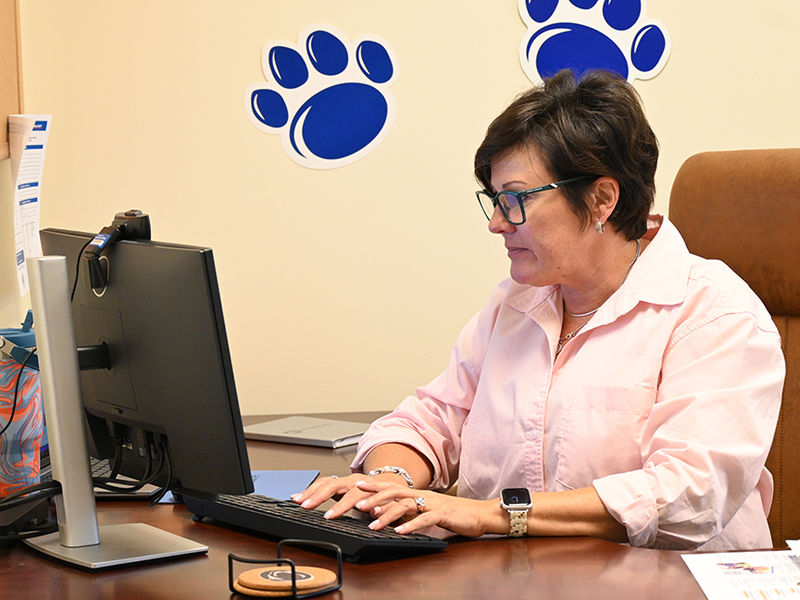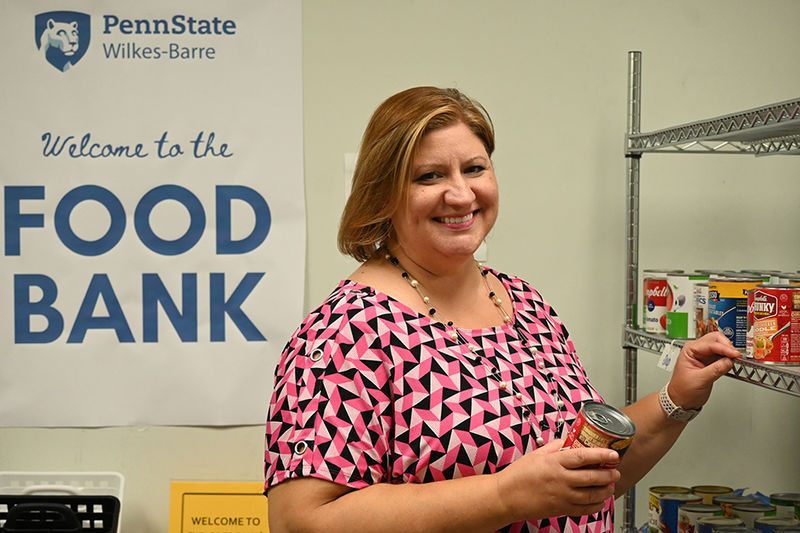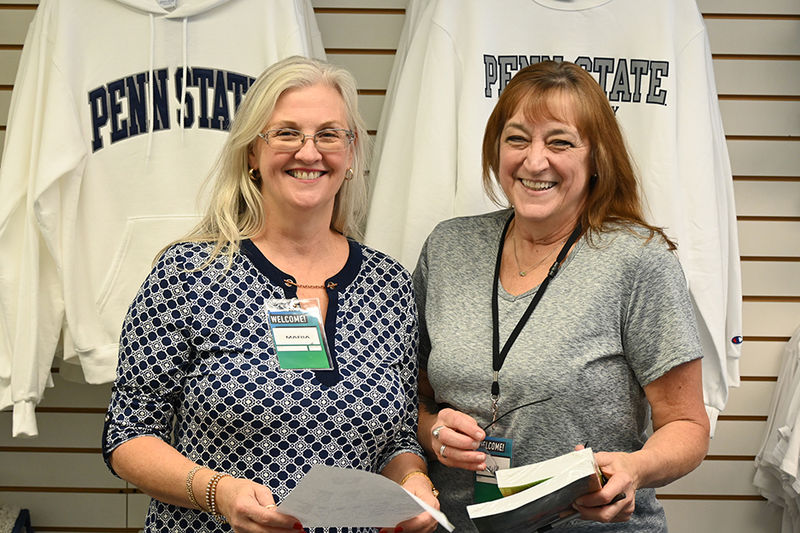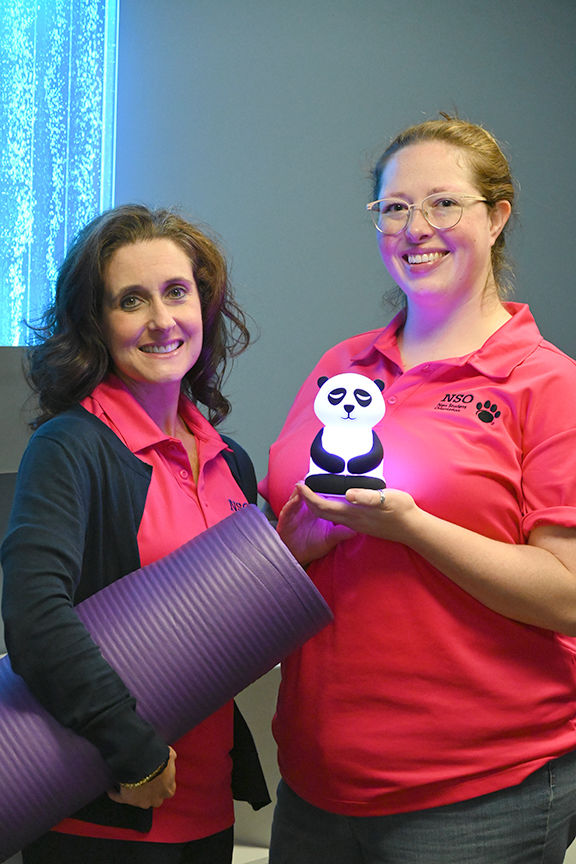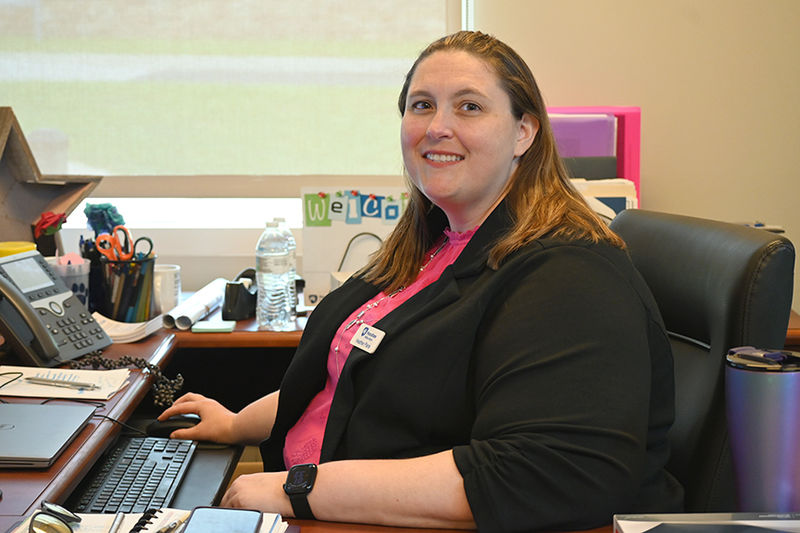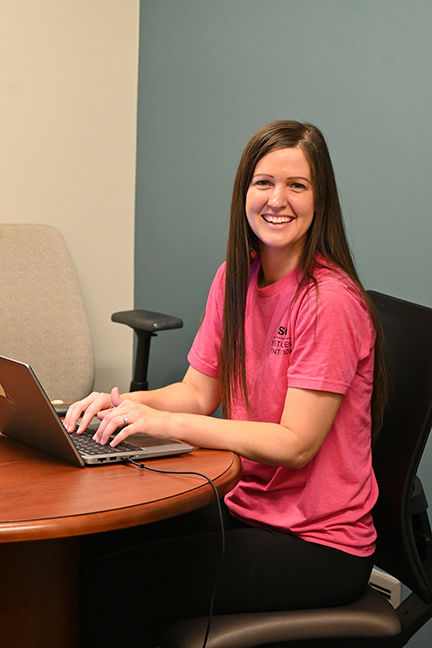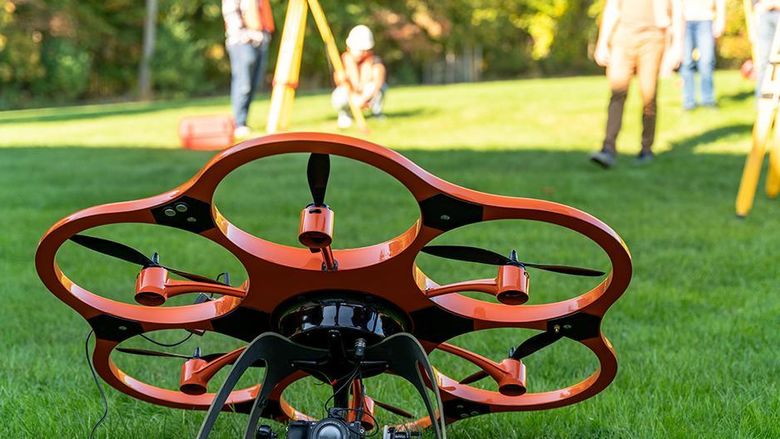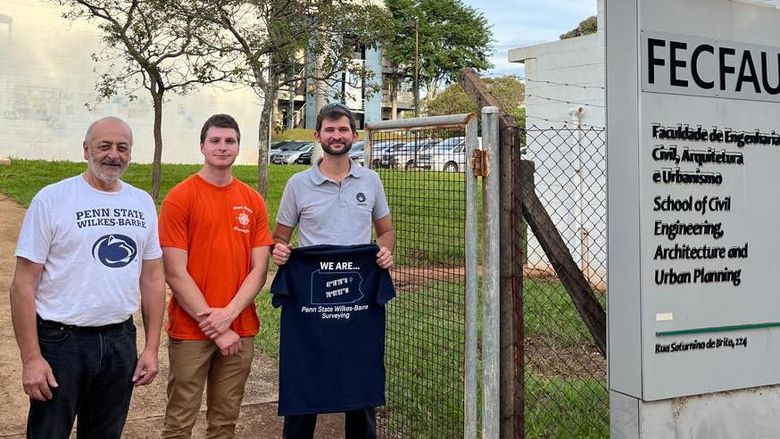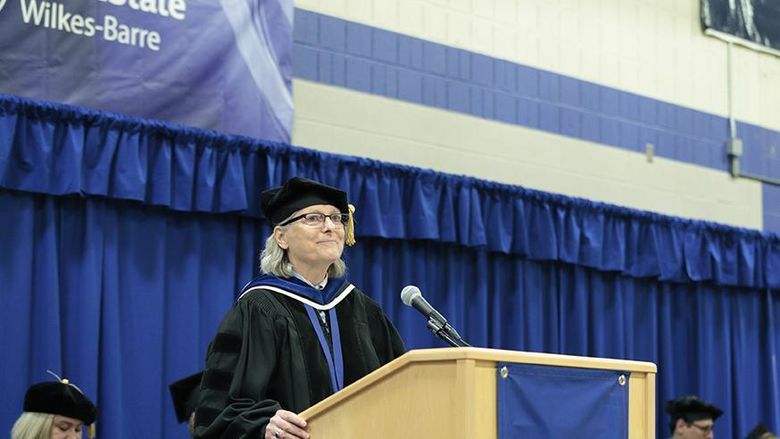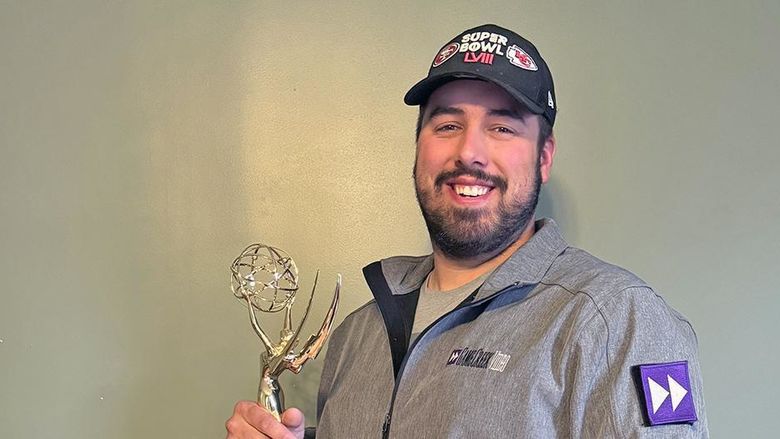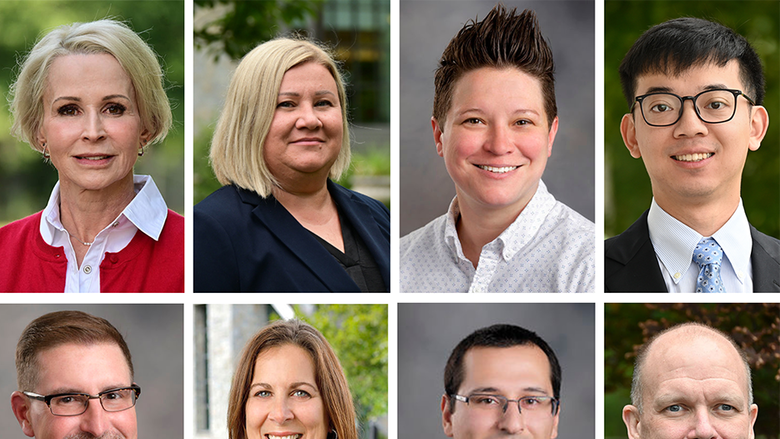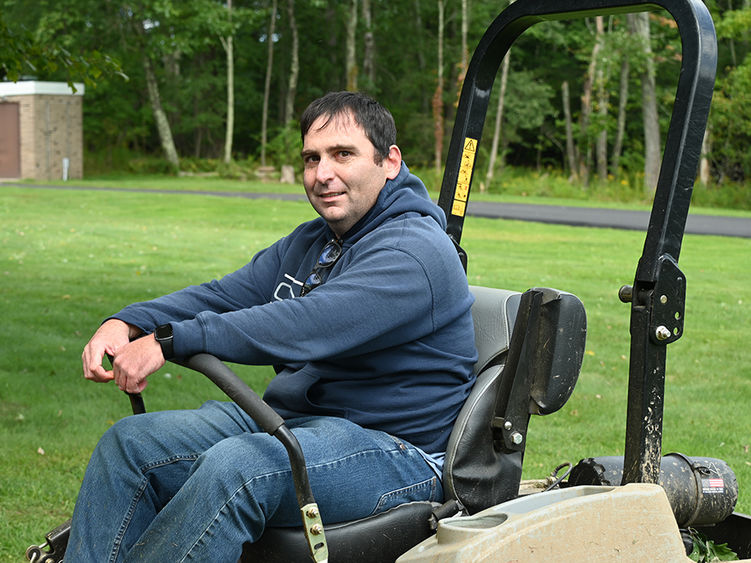
Paul Shaver from Penn State Wilkes-Barre's facilities and maintenance department is one of the people helping get the campus ready for students to arrive.
DALLAS, Pa. — While students are making last-minute purchases and plans before they start their academic year at Penn State Wilkes-Barre, personnel across campus are undertaking preparations of their own to get ready to welcome the students. It takes many people and a lot of coordination to prepare the classrooms, technology, buildings and grounds that students, faculty and staff use on a daily basis.
“The entire campus really pitches in to assist with preparation for move-in and the start of the semester,” said Tracy Garnick, interim director of student services and engagement. Garnick also serves as director of student services and engagement at Penn State Hazleton and previously worked as director of admissions at Penn State Wilkes-Barre. “From IT helping meet our technology needs, getting everyone’s office ready and making sure students are supported when they get to campus, to Academic Affairs assisting with New Student Day, to Strategic Communications helping with mailings and promotional materials for our new students, to the assistance of other areas of campus, it takes a village to make this happen.”
Garnick’s department manages New Student Day, Welcome Week and other activities throughout the academic year. Those events require planning and coordination, along with collaboration with numerous other departments, including admissions, advising, information technology and strategic communications.
“We are busy getting all of our ducks in a row in terms of planning and development,” Garnick said. “We’re coordinating the mechanics of each event, organizing all the people who need to be present, ordering items, lining up speakers for convocation, getting students’ class schedules ready for New Student Orientation and preparing for the arrival of international students, to name a few.”
John Vito Powell, student activities coordinator, oversees many of the events for students at the beginning of the academic year and throughout the semester. To make those events happen, he first considers the benefits for students as well as their interest in activities and entertainment.
“The first week is all about trying to make it exciting for our students to come to campus and start the year. We also want to show them the resources we have available,” Powell said. “We try to do things that are interactive to get them to meet each other and the campus staff and faculty, like our Welcome Barbecue that’s always a tradition during the first week of classes. The second week is all about getting them involved and learning about our clubs and organizations and different departments on campus. During the club fair and engagement marketplace, different clubs and staff have tables where they can pass out information and meet students.
To make those events happen, he starts with a planning calendar to review dates and reserve spaces. He contracts with different management companies to bring outside performers to campus. Powell orders items such as water bottles, hats, drawstring bags and T-shirts used as giveaways and prizes, and also works with the maintenance department to ensure that each space is set up as it needs to be for that particular event and the IT department for any technology needs. Then after an event is over, he cleans up the area, with maintenance and IT returning for their equipment as well.
“It requires coordinating with a lot of people,” Powell said. “Maintenance is a huge help for us in getting areas set up and ready. IT comes in to help with microphones, projectors, mixer boards, cords or whatever else we need.”
Information technology
“We make sure each department having an event has the proper visual and sound equipment,” said Ty Pace, systems administrator. “We also set up and provide event support and are available to help if there are any issues.”
Over the summer, IT employees completed their typical summer tasks, including a complete rebuilding of all the computers in the labs and putting new software on those computers. They also completed technology upgrades on classroom sound systems and podiums.
IT updates software on more than 150 classroom computers and about 100 computers used by faculty and staff before classes begin. To assist with this process, the IT team creates a set of instructions (known as a script) that can add all of the necessary software and group policies, deploying the script to automate the process of installing software and security features.
“We can create the script to put together everything the computer needs and push it all out at the same time,” Pace explained.
He will host a technology segment at New Student Orientation to explain to students what they need to know and the technology they have access to. And after classes start, he will be available through the campus helpdesk when various needs or issues arise.
“IT touches most departments on campus, so we are really part of everything,” Pace said. “As IT issues or questions come up, we’re happy to jump in to help.”
Facilities and maintenance
Facilities Manager Michael Chura and his staff have been busy over the summer with projects to improve the campus, including an HVAC (heating, ventilation and air conditioning) upgrade to the Bell Technology Center and replacing the outdoor stairs to the building, upgrades to the campus wastewater treatment plant; and parking lot paving, sealing and line painting. During the fall semester, his crew will take down two modular units behind the Science Building.
Chura coordinates with project managers from the Office of the Physical Plant at University Park, a staff assistant and several technical service workers to complete the projects. His staff also pitches in to prepare for the events held on campus.
“The first week of classes is always especially busy with events and club functions,” Chura said. “We have many tables and tents that need to be set up and taken down for events.”
Throughout the semester, maintenance takes care of a large part of the campus, ensuring that grass is mowed, flowers are planted, buildings are clean and any necessary improvements are made.
“We take pride in making the campus look good,” Chura said of his staff. “First impressions really matter, and we want to make sure our facilities are at their best for our students.”
Health and safety preparations
Before the school year gets under way, the campus must ensure that its laboratories are up to University safety standards and government regulations. Each year during the summer, the University’s Environmental Health and Safety department sends a representative to check and prepare the labs, including fume hoods, showers and eye wash stations.
“There are always safety concerns in the labs due to the use of chemicals and fumes. We have student learning and faculty and student researchers who need a safe place to do experiments, so we want to make sure they have the proper controls when doing their research,” explained Joe Mazzoni, regional environmental health and safety coordinator.
During his annual summer visit, assisted by a campus maintenance technician, he tests all the lab safety equipment, checking things like air flow on the vent hoods, clearance on the eye wash stations and water flow in the showers. When he can, he addresses issues immediately. If they require additional time to fix, he works with the maintenance department to ensure they are taken care of properly.
“Our safety equipment is available for our students and faculty if there is an emergency situation and they need it,” Mazzoni said. “It’s important we maintain that equipment to reduce the chance of chemical exposure or other harm.”
He visits Penn State Wilkes-Barre every two weeks to ensure the proper health and safety environmental procedures are being followed across campus. And throughout the year, he works with the campus’ maintenance department to ensure equipment such as lawn mowers and cleaners is operating properly and in compliance with Occupational Health and Safety Administration (OSHA) requirements.


